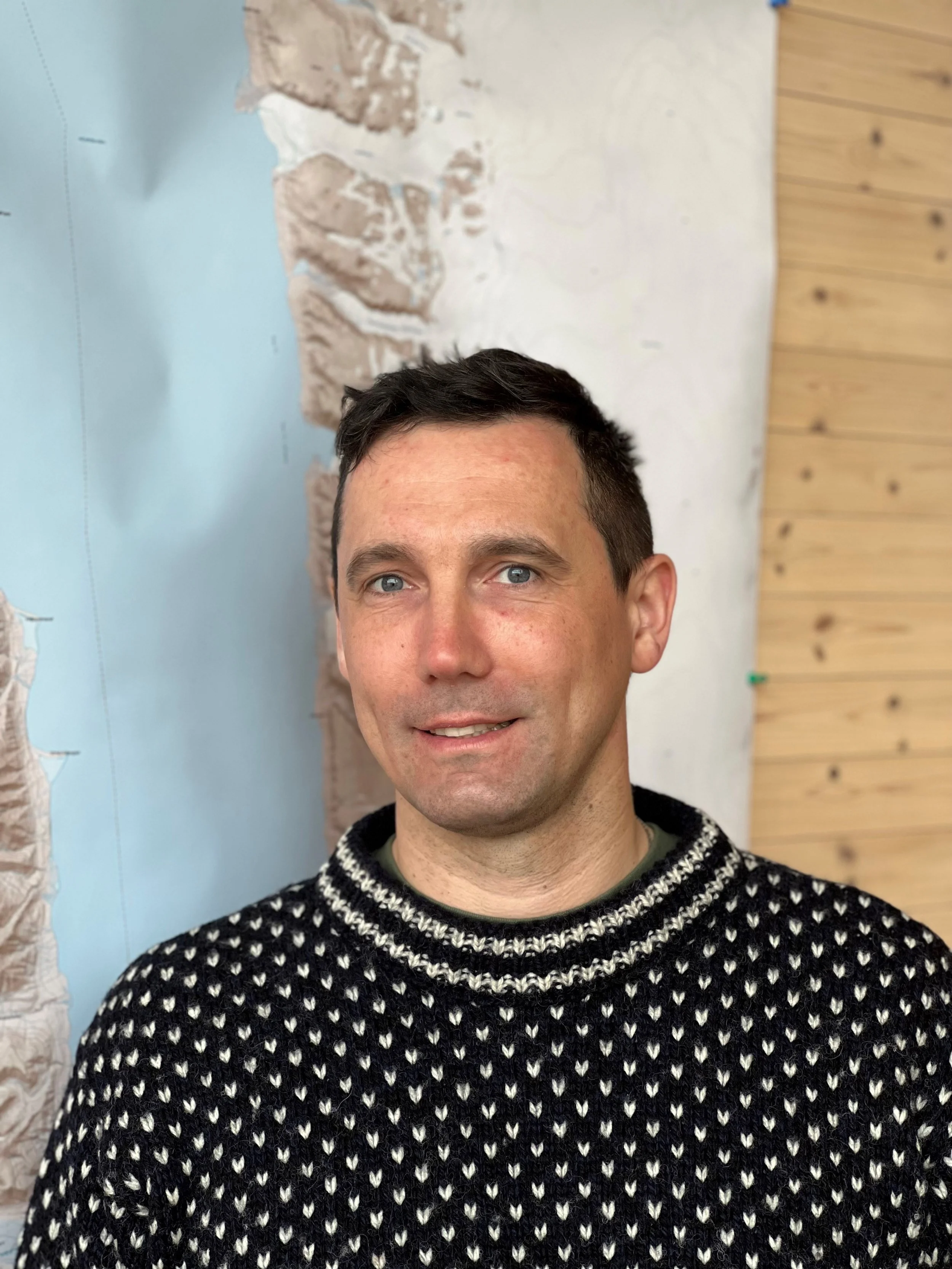I Noradapt-timen 31. august orienterer Sintef-forskar Anatoly Sinitsyn om forskning på korleis kulturarven på Svalbard blir påverka av klimaendringar, med vekt på tekniske konsekvensar og løysingar og dei etiske sidene ved bevaringstiltak. Set av ein halvtime til webinaret!
Kulturarven på Svalbard er sårbar og utsett for påkjenningar frå det harde arktiske klimaet, klimaendringar og reiselivstrafikk. At permafrosten i grunnen tinar, verkar inn på haldbarheit, stabilitet og fundamentering for bygningar og andre objekt. Klimaendringar kan også auke sannsynet for andre naturfarar, som jordskred, kysterosjon og elveflaum.
Anatoly Sinitsyn er forskar ved Sintef Community og har vore med på å utvikle ein ny metodikk for å vurdere naturfare knytt til kulturminne. (Foto: privat)
Forskarane i prosjektet Polar Climate and Cultural Heritage – Preservation and Restoration Management (PCCH-Arctic) studerer kulturarven i Longyearbyen og Ny-Ålesund, begge kolgruvesamfunn med gjenstandar som er ein del av den internasjonale kulturarven og uerstattelege kjelder til historisk informasjon.
Idealet for skjøtselen er å ta vare på kulturminna sin autentisitet og integritet, altså unngå at bevaringstiltak går ut over kulturminnet sine tolegrenser og utfordrar staden sin verdi – såkalla verdibasert forvalting.
Forskingsprosjektet PCCH-Arctic ser på tekniske konsekvensar og løysningar for å beskytte kulturarven på Svalbard mot utslag av klimaendringane. Dei ser òg på etiske sider ved tiltak for å bevare slike strukturar: Bør ein satse på autentisk rekonstruering og i kva grad kan tiltaka avvike frå det opphavlege? Bør ein godta at enkelte av kulturminna gradvis går i oppløysing og forsvinn?
Sintef-forskar Anatoly Sinitsyn og andre i prosjektet har utvikla ein overordna metodikk for vurdering av naturfare knytt til kulturminne. Denne har dei brukt for å undersøke kulturarven i Longyearbyen og Ny-Ålesund, og prosjektleiar Anatoly Sinitsyn presenterer både metodikken og resultata på webinaret.
Innleiar: Anatoly Sinitsyn (Sintef Community), prosjektleiar i PCCH-Arctic
Tidspunkt: torsdag 31. august kl. 12-12.30
Zoom-lenke: https://us02web.zoom.us/j/84468273650?pwd=ZVNZS2tvaWQxUXNSdktLdVNHaUZNQT09#success
Webinaret er ope for alle.
English:
Noradapt-timen: How can we protect the cultural heritage in Svalbard against climate change?
In Noradapt-timen 31 August, Anatoly Sinitsyn will present research on how the cultural heritage in Svalbard will be influenced by climate change, with a focus on technical consequences and solutions as well as ethical aspects of preservation measures.
The cultural heritage at Svalbard is fragile, and exposed to impacts of a harsh arctic climate, climate change and tourism traffic. A significant reduction in the distribution and thickness of permafrost is experienced, having a major impact on durability, stability, and foundations of many objects. Climate change may also increase probabilities of other natural hazards, such as landslides, coastal erosion, and river flooding.
PCCH-Arctic studies the cultural heritage of Longyearbyen and Ny-Ålesund, both representing coal mining community sites and objects regarded as international heritage and irreplaceable sources of historical information.
(Photo: Trym Nilsen, Unsplash)
Caretaking is sought to be based on value-based management, with authenticity and integrity as the most distinct heritage values, but where the resilience of a cultural heritage site constitutes its tolerance limits, and to exceed such limits will challenge the value of the site, and thus its resilience.
Thus, the PCCH-Arctic research project focuses on the research of future climate change and technical consequences and solutions for the cultural heritage on Svalbard, and on the ethical aspects regarding to what extent measures to preserve such structures are to be authentically reconstructing the original performance, to deviate from this in order to preserve the structures within limits of economy, or to let the cultural heritage structures slowly dissolve and disappear.
As part of technical developments, a "coarse" methodology for assessment of natural hazards on cultural heritage is developed by the project. This methodology was applied to the cultural heritage in Longyearbyen and Ny-Ålesund. Methodology and results will be presented at the seminar.
Speaker: Anatoly Sinitsyn, project leader and co-developer of the methodology
Time: Thursday 31 August at 12 p.m. (Duration: 30 minutes)
Zoom link: https://us02web.zoom.us/j/84468273650?pwd=ZVNZS2tvaWQxUXNSdktLdVNHaUZNQT09#success



